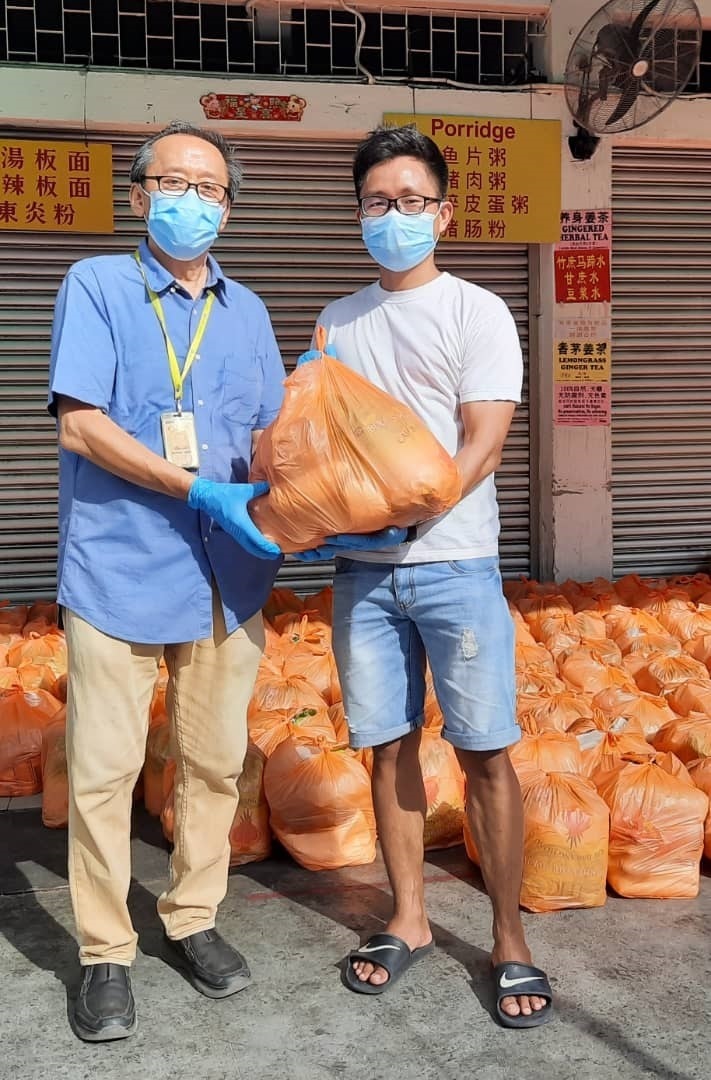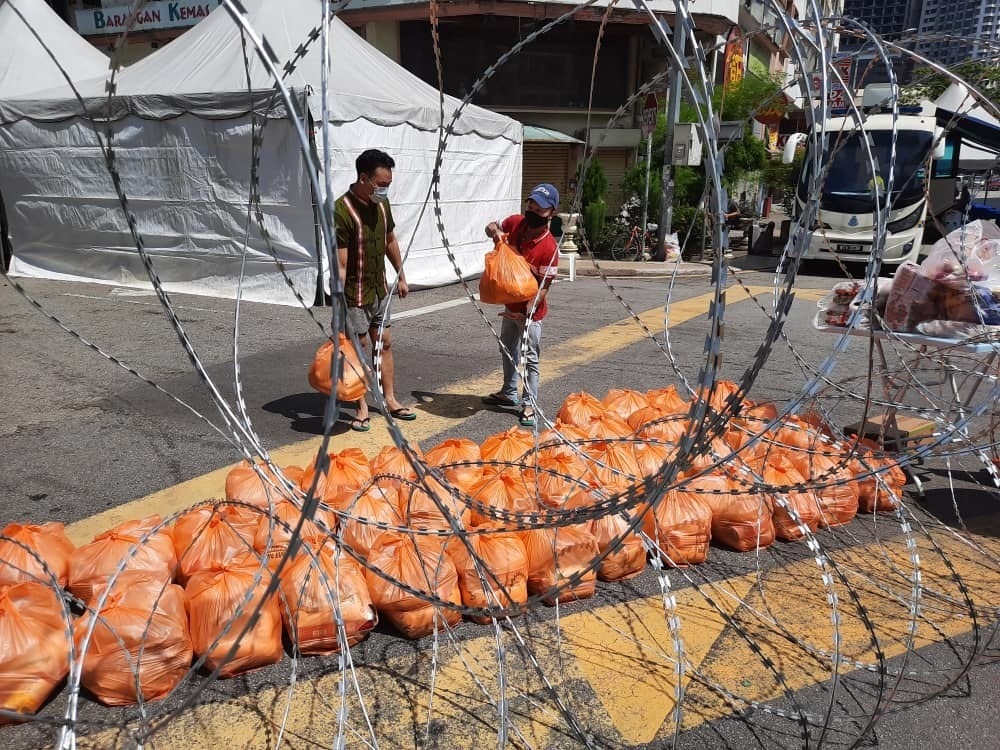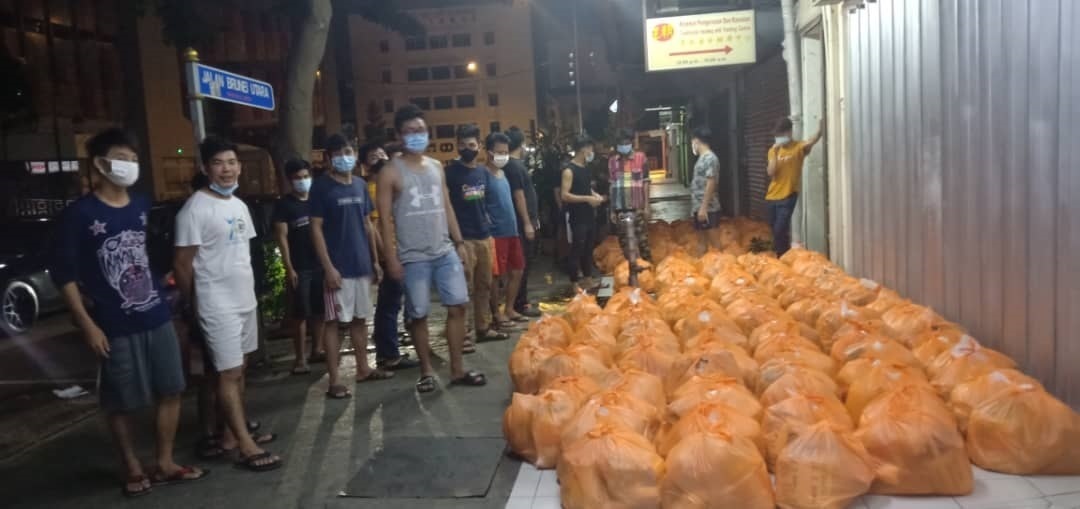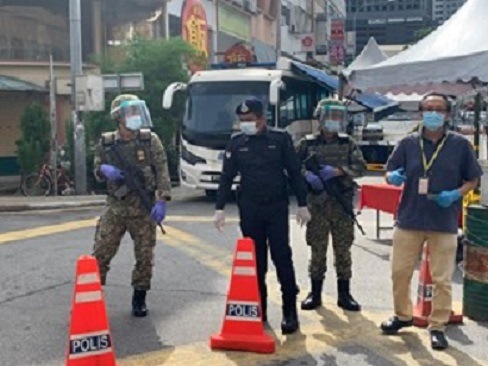Reflections on the Refugees’ Situation During MCO in Malaysia
Audio Version: Reflections on the Refugees’ Situation During MCO in Malaysia
By Christopher Quah
Pastor Michael Moey works among the refugees in our nation. Here, he shares the challenges faced by the migrants during the MCO. He also shares how we can respond.
Who would have thought that a microscopic virus would bring the world to a standstill? But we have experienced it for ourselves ever since December 2019 when the first cases of COVID-19 were detected in Wuhan, China. We are now experiencing what is called the new norm, where the Standard Operating Procedures (SOP) and social distancing have become our daily routines. However, what has affected all our lives most were the lockdowns implemented to curb the spread of Covid-19.
Recently Pastor Michael Moey, who works among the refugees, shared how the COVID-19 pandemic has affected the lives of the migrants drastically, especially when the economy almost came to a standstill due to the pandemic.

“The lockdown affects our social classes in different ways. The middle and upper classes generally do not have much to worry about in terms of having sufficient financial resources to ride the pandemic. Undoubtedly, those who have businesses to run are concerned about the maintenance of their enterprises and the servicing of bank loans. Nonetheless, these classes would fare better than the working class and the B40 group. When businesses have to shut down because of the Movement Control Order, the poor have no work. Many in the latter category will not receive salaries that are vital for their survival and to repay debts. This includes the refugees whose vulnerability would accentuate at such a time when they are being considered as undocumented migrants in this country,” he explained.
He added that during MCO, a conservative estimate of refugees who have lost their jobs would be around 90%. He explained that there are many wrong myths of how the refugees are perceived during the pandemic which has serious effects on them.
“I will attempt to offer some reflections on relief work among the refugees during the pandemic with respect to five myths about this powerless group of people,” he shared.
Below is a sharing from Pastor Michael Moey:
‘Myth #1: Refugees have enough savings to last the pandemic.
What are the implications of not having jobs for the refugees? As their earnings are meagre, many hardly have sufficient savings to pay for their rent, food, and medical expenses. A typical earning of a refugee adult in a restaurant is about RM1000 to RM1500 a month, a wage that is barely adequate to sustain the upkeep of a family. While some landlords are kind enough to reduce the rent by a third or half the monthly rate during the pandemic, others are brutal in their treatment of the refugees. Many are merciless to insist that the refugees pay the full rent during the lockdown.
In this dire situation, some refugees have to vacate their premises and live with other refugee families in crowded conditions. A few refugee churches and schools are forced to close owing to the lack of money to pay the rent. Meetings and classes could not be held and consequently, there were no tithes to support the church or school. With respect to medical expenses, a normal delivery in the public hospital could cost about RM2500 for those who have the UNHCR card. Those who do not have the card may have to pay about RM5000, not inclusive of complicated surgeries.
Some locals falsely assume that refugee families love to have many children even in difficult times without understanding that the pregnancies occurred before the lockdown. The lockdown was an unforeseen event for all of us including the refugees.
Myth #2: Refugees are not keen to work.
On the contrary, the refugees are conscientious to look for work. They are concerned about not being able to pay the rent, medical expenses, food, and tuition fee for their kids. During the lockdown, it is not easy to get jobs because of stricter legal requirements.
Undocumented migrants and refugees were required to get a COVID-19 test certificate before an employer would offer employment to them. This test certificate would cost about RM290 per person. Employers are afraid of the legal consequences of hiring undocumented workers, especially those without such certificates, during the height of the lockdown. When the MCO was relaxed, there was still a great hesitation in hiring these workers whether in the restaurants, factories, or construction sites. While there were NGOs who offered to sponsor these tests, they are limited in available places.
During RMCO (Recovery MCO), there was a 54-year-old lady who was going out every day desperately looking for a job to cover the family’s rent, food, and medical expenses. The family ran out of savings in this tough situation. The husband and 18-year-old son are mentally depressed and could not work. This family lives in Pudu and has been waiting anxiously for more than 10 years for resettlement to a third country that never came. Can one imagine how difficult it is to look for a job when one is 54 years old? And being a woman too. It is a myth of the worst sort to think that refugees and undocumented migrants are not diligent in looking for employment.

Myth #3: Refugees should not have handphones especially the children.
During the lockdown, all schools had to close. The urban kids, particularly those in the middle class, have computers, laptops, and smartphones to cope with virtual classes. This is not the case for the B40 and refugee children and youths. The locals who teach voluntarily in the refugee schools sometimes forget that these children do not have the digital resources to cope with zoom classes.
Besides not having computers and laptops, many do not have the money to buy credit to go online. Their parents do not earn much. Often, they would ‘borrow’ Wi-Fi or find free internet hotspots to go online.
In our refugee school, we raise funds for students who cannot afford to go online. During MCO, we buy cheap handphones or request donations for the students who do not have them for online classes. In some refugee schools where the students cannot afford the resources for online classes, the teachers are told to teach the students in their homes so that the kids can continue their education.
Many refugee kids in primary school do not have a handphone to go online. When these students are not able to attend classes physically, this places an extra burden on the parents to care for them. Many refugee parents cannot work because they have to look after the children at home.
Conversely, it is not uncommon to find many home-alone children when the schools are not opened as parents have to work for their survival. It is the classic chicken-egg conundrum. Short of computers, handphones are a necessary tool of communication with the families, UNHCR, and for education.
Myth #4: Refugee single parents have adequate means to care for their families. While helping to contribute food and cash assistance to needy refugee families, I was gently ushered into the world of single parents, especially single mothers. These single parents have to cope with finding sufficient funds to support their families besides caring for their children. A single parent is like a bird flying with only one wing. They have many worries: getting a job, paying the rent, buying enough food for the children, paying for their kids’ education, and medical expenses when they are sick. There are many reasons for this situation: spouses that have been arrested by the authorities, the death of a spouse, adultery, desertion, and domestic abuse.
In one case, a refugee woman whose husband had been detained by the authorities in October 2019 lived with her one-year-old son. Much effort was made to contact him but all failed. For almost a year, he could not be contacted until he called her recently. We had thought the worst; that he might have been deported. In his absence, she had difficulties paying her rent and getting daily necessities for her son and herself. Together with her son, they live in a small room for RM250 monthly rental. Her community leaders appealed to us for assistance. By God’s grace, we were able to find a church cell group that committed to support this family with RM500 monthly for a year.
In the last three months, we identified 25 single-mother families who needed cash assistance for rent and food. This is just the tip of the iceberg. In one case, a single mother who applied for monetary relief came to the church with only RM20 in her savings, wondering how she will survive the coming weeks. RM500 is not much for many of us but for these single-parent families, it is a fine line between survival and hunger, debts, and more debts. We are thankful to God that there are kind donors who are able to make a monthly financial commitment to these families for the next six months.
Myth #5 Locals are not sympathetic to the plight of refugees.
During the MCO, EMCO, RMCO, and CMCO (Conditional MCO), it is encouraging to find locals who are willing to support the refugees with food and cash support. Some NGOs, churches, temples, and mosques are actively raising funds to provide food for the B40 groups and refugees.
In April 2020, I know of a Buddhist banker who used his savings and chicken business to provide fresh chicken meat for refugees and other vulnerable groups. He would have contributed a few thousand chickens for this relief work in the early phase of MCO.
When I initially became involved in this relief work together with a few friends, I was sceptical if friends will support this venture, but God surprised me as He always does, beyond my imagination. We did not raise a lot of funds, but we did our little parts to lighten the food burden of at least 3,000 refugee families over a period of six months in 2020.

“I am personally encouraged by the willingness and kindness of Buddhist, Muslim, Hindu, and Christian organisations and friends who are willing to walk in solidarity with these powerless people,” Pastor Michael explained.
However, due to the negative images of how the refugees were portrayed, there is still a veil of xenophobia that occurs towards them. “More needs to be done to reduce the xenophobia of the majority against refugees. Xenophobia results in ignorance, prejudice, discrimination, and exploitation. Refugees are among the foreigners in our land. We are connected with each other through the Divine Image in all of us. Our forefathers have been migrants too from distant lands,” Pastor Michael expressed. Furthermore, even in the Old Testament, there were rules and laws in protecting refugee rights (Leviticus 19:33-34).
Pastor Michael summed up with an important reminder on how we should view others in the Kingdom of God. “In the coming glorious Kingdom of God where the King of kings and Lord of lords is exalted, there is not a distinction between the worshippers in terms of nationality, classes, gender, and legal status. We worship, walk, and work together. Maranatha, come Lord Jesus!”
Those who want to help or support the ministry are warmly welcomed to contact Pastor Michael Moey via email at michaelmkw@gmail.com. Pastor Michael serves and works at Ruth Refugee Education Centre.

About Chris Quah
Chris Quah is a published author, journalist, creative writer, and audio book junkie. He has been published in many publications, among them the popular culture fiction publishing house Fixi Novo in a few of their anthologies (Chronicles of KK, PJ Confidential, 2020: An Anthology).
